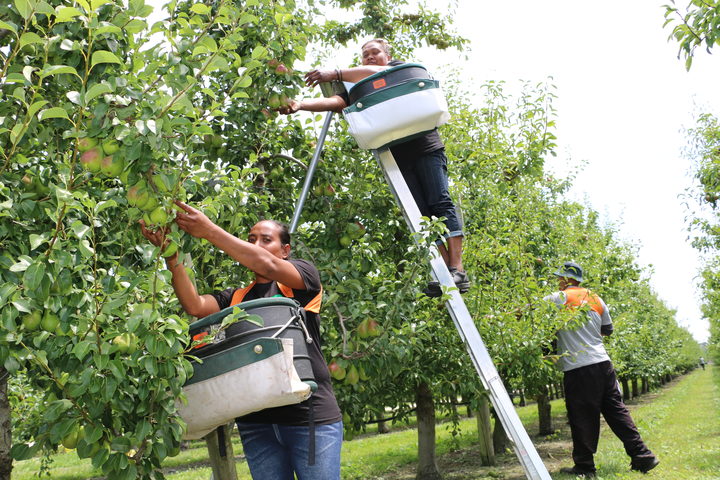SYDNEY,17 MAY 2018 (WORLD BANK) – Australia’s Seasonal Worker Programme is delivering more than just financial benefits to Pacific Island countries, with a new study finding that the scheme is also a factor in bringing about positive social impacts both for families that participate, as well as those that don’t.
The report undertaken by the World Bank, The Social Impacts of Seasonal Migration: Lessons from Australia’s Seasonal Worker Programme, assesses both positive and negative outcomes for participants, families and communities, focusing on the two largest participating countries in the scheme, Tonga and Vanuatu.
“I welcome the World Bank’s reports on the Australian Government’s Seasonal Worker Programme,” said Australia’s Minister for Foreign Affairs, Julie Bishop. “The World Bank’s findings help inform our work, and underscore the value of initiatives such as the recently launched Women in Agriculture Pilot. Labour mobility from the Pacific to Australia plays a key role in strengthening economic resilience and contributes to stability and prosperity in our region.”
The report found that female seasonal workers have gained sought-after new skills and knowledge, including increased levels of financial literacy, English language proficiency, leadership and entrepreneurial skills. The report says that women who have participated in the Seasonal Worker Programme have consistently improved their ability to control and manage household finances because of better coordination between spouses on how money is spent, even when they are not direct participants in the Programme.
Despite positive impacts, the report also found that, owing largely to the gap between male and female participation rates, more men than women are away from their families for extended periods, leading to challenges on the part of these men to provide continuous financial and personal support to their families back home. Communication issues were also evident among some couples, which led to negative impacts on some families.
To build on the benefits, and help address the challenges, the report outlines a number of recommendations for sending country authorities as well as for Approved Employers and recruiting agents in Australia. These include:
* Improving support services and counseling for families of workers.
* Strengthening community-led support programs for workers’ families.
* Promoting women’s participation in both sending countries and in Australia, by creating more opportunities in the agriculture and tourism/accommodation sectors.
* Offering community awareness programs that discuss the different roles of men and women in the context of the Seasonal Worker Programme.
“While labour mobility schemes like the Seasonal Worker Programme are delivering economic benefits, it’s important that we also pay attention to the social impacts of migration for Pacific Islanders,” said Michel Kerf, Country Director for Papua New Guinea and Pacific Islands. “As with any program of this size and complexity, there will be challenges; yet we hope this report can be used as a tool to find policy solutions to meet them head-on – particularly to drive an increase in female participation, as well as support for families that remain at home.”
The Social Impacts of Seasonal Migration: Lessons from Australia’s Seasonal Worker Programme has been produced by the World Bank with the support of the Australian government Department of Foreign Affairs and Trade. The report follows Maximizing the Development Impacts from Temporary Migration: Recommendations for Australia’s Seasonal Worker Programme, launched in March 2018.




